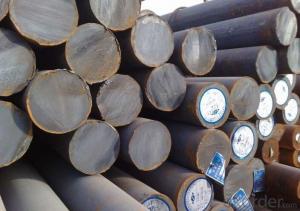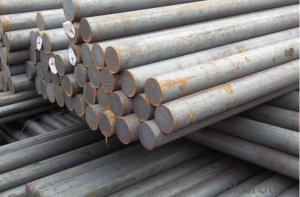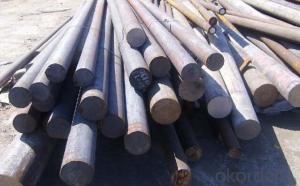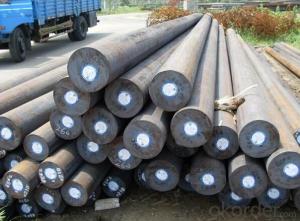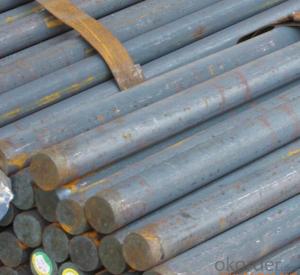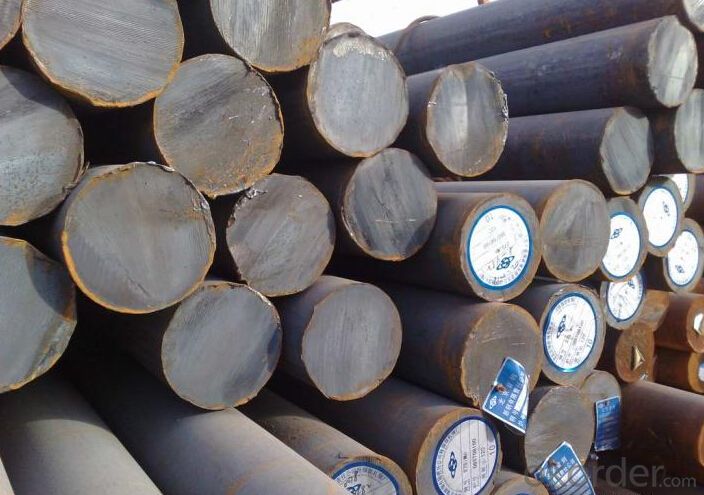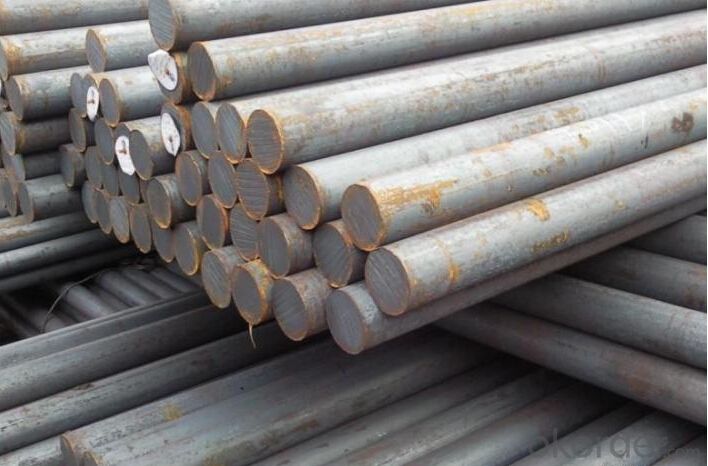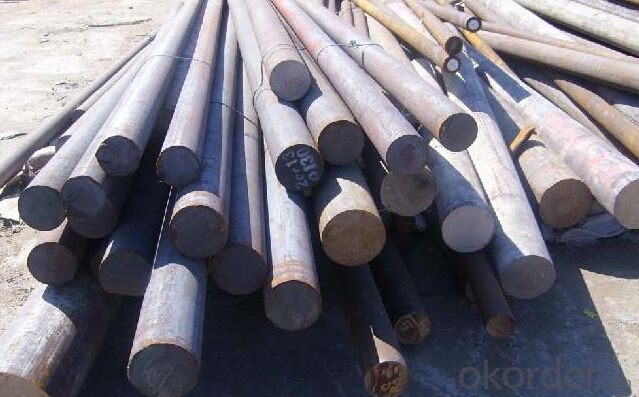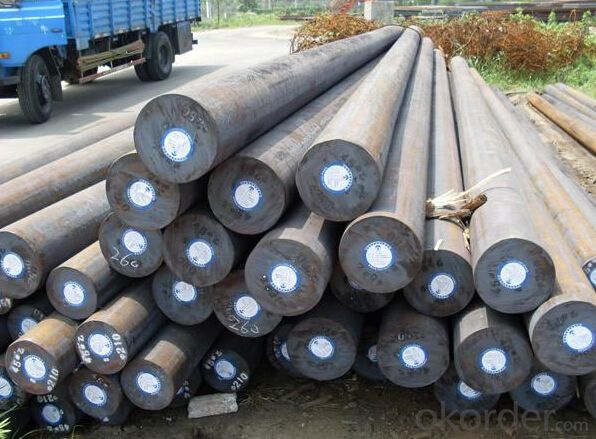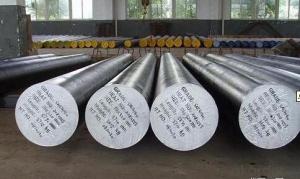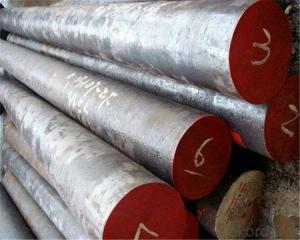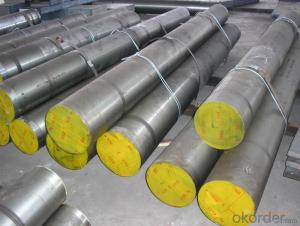DIN1.7225/SAE4140 CNBM Alloy Steel Round Bar with Low Price
- Loading Port:
- Tianjin
- Payment Terms:
- TT OR LC
- Min Order Qty:
- 3 m.t.
- Supply Capability:
- 10000 m.t./month
OKorder Service Pledge
OKorder Financial Service
You Might Also Like
Specification
DIN1.7225/SAE4140 Alloy Steel Round Bar Price
Name | DIN1.7225/SAE4140 Steel Round Bar |
Shape | Round Bar/Square Bar/Flat Bar/Plate/Wire |
Standard | GB/ASTM/SAE/AISI/DIN/JIS/EN/BS |
Surface Treatment: | Black/Peeling/Polished/Machined |
Delivery Condition: | Hot Rolled or Forged/Peeled or Black Surface |
Test | SGS/UT 100% Elements Testing |
Certificate: | ISO/Mill Certificate |
Service: | 24 hours online service / |
more than 20 years trading and manufacture | |
Quality Assurance: | the third party inspection, such as SGS, BV, TUV…etc. is acceptable |
Packaging Details: | seaworthy packaging or as per customer's packing instruction |
Chemical Composition
C | Si | Mn | Cr | Mo | P | S |
0.38-0.43 | 0.40max | 0.60-0.90 | 0.90-1.20 | 0.15-0.30 | ≤0.035 | ≤0.035 |
Application
4140 Alloy Steel is engineering steel supplied in quenched and tempered conditions.
Very good machinability.
High toughness.
High creep strength.
Repeated impact resistant capability.
Packaging & Delivery
Packaging Detail | Sea worthy packing /as per customer's packing instruction |
Delivery Detail | 15 ~ 40 days after receiving the deposit |
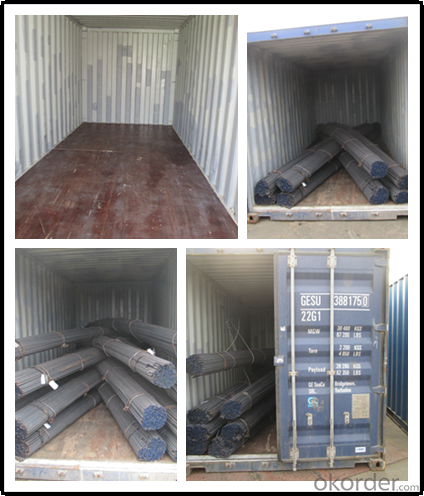
Product Show
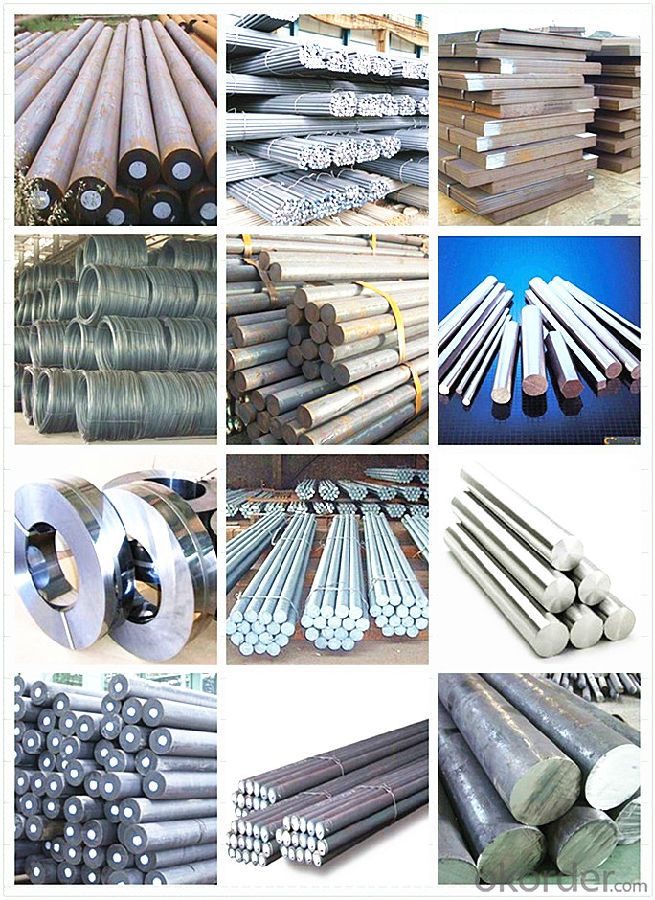
Workshop
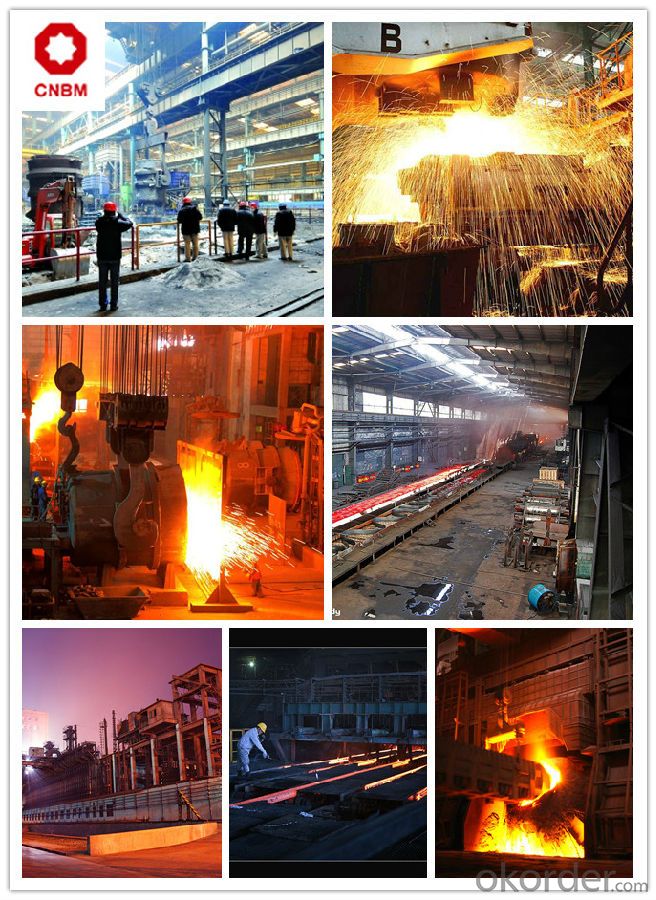
FAQ
Are you a trading company or manufacturer? | Manufacturer |
What’s the MOQ? | 3 metric ton |
What’s your delivery time? | 15-35 days after downpayment received |
Do you Accept OEM service? | Yes |
what’s your delivery terms? | FOB/CFR/CIF |
What's the Payment Terms? | 30% as deposit,70% before shipment by T/T |
Western Union acceptable for small amount. | |
L/C acceptable for large amount. | |
Scrow ,Paybal,Alipay are also ok | |
Why choose us? | Chose happens because of quality, then price, We can give you both. |
Additionally, we can also offer professional products inquiry, products knowledge train (for agents), smooth goods delivery, excellent customer solution proposals. | |
What's your available port of Shipment? | Main Port, China |
What’s your featured services? | Our service formula: good quality+ good price+ good service=customer's trust |
Where are your Market? | Covering more than 160 countries in the world |
- Q: How does special steel perform in power generation applications?
- Special steel is highly valued in power generation applications due to its exceptional properties and performance. Power generation equipment such as gas turbines, steam turbines, and nuclear reactors operate under extreme conditions of high temperature, pressure, and corrosive environments. Special steel alloys, specifically designed to withstand these harsh conditions, offer several advantages in power generation applications. Firstly, special steel exhibits excellent heat resistance, making it ideal for power generation equipment that operates at high temperatures. This steel has a high melting point, enabling it to maintain its structural integrity and mechanical properties even at elevated temperatures. This is crucial for gas turbines and steam turbines, which generate power by converting thermal energy into mechanical energy. Secondly, special steel possesses superior strength and toughness, making it well-suited for power generation applications that require reliable and durable components. Power plants operate continuously, often for long periods, and are subject to significant mechanical stresses. Special steel can withstand these loads without deformation or failure, ensuring the safe and efficient operation of power generation equipment. Furthermore, special steel exhibits excellent resistance to corrosion and oxidation, which are prevalent in power generation environments. This steel is designed to resist the corrosive effects of high-temperature gases, steam, and water, ensuring the longevity of power generation equipment. Corrosion-resistant alloys of special steel are commonly used in power plants to prevent material degradation and maintain operational efficiency. In addition to its mechanical and corrosion-resistant properties, special steel also offers excellent weldability and machinability. This makes it easier to fabricate and assemble power generation equipment, reducing production time and costs. Overall, special steel is a reliable and high-performance material for power generation applications. Its exceptional heat resistance, strength, toughness, corrosion resistance, and weldability make it an ideal choice for gas turbines, steam turbines, and other power generation equipment. The use of special steel in power generation contributes to increased efficiency, reliability, and longevity of these critical systems.
- Q: Can special steel be used in the manufacturing of household appliances?
- Yes, special steel can be used in the manufacturing of household appliances. Special steel, also known as alloy steel, offers a range of desirable properties such as high strength, durability, and resistance to corrosion and wear. These characteristics make it suitable for various applications, including the production of household appliances. Household appliances such as refrigerators, ovens, dishwashers, and washing machines require materials that can withstand constant use, high temperatures, and exposure to water and chemicals. Special steel fulfills these requirements and provides a reliable and long-lasting solution. For example, stainless steel is a type of special steel commonly used in household appliances due to its corrosion resistance and hygienic properties. It is used in appliance components such as refrigerator doors, oven interiors, and dishwasher interiors. Stainless steel is easy to clean, maintains its appearance over time, and does not react with food or other substances, making it an ideal choice for household appliances. Additionally, special steel alloys can be used to enhance specific properties needed in different appliances. For instance, heat-resistant alloys can be utilized in ovens or stovetops, while high-strength steel alloys can be employed in appliances that require structural integrity, like washing machines or dryers. In summary, special steel can definitely be used in the manufacturing of household appliances. Its various properties, including strength, durability, resistance to corrosion, and versatility, make it an excellent material choice for ensuring the performance, longevity, and safety of household appliances.
- Q: What are the main factors affecting the toughness of special steel?
- The toughness of special steel is influenced by several main factors, namely its composition, microstructure, and heat treatment. Composition is a key determinant of toughness, as certain alloying elements like chromium, molybdenum, nickel, and vanadium can enhance the steel's toughness by forming solid solutions or precipitates that impede crack propagation and improve fracture resistance. Microstructure also plays a significant role in determining toughness. The size, shape, and distribution of different phases in the steel, such as ferrite, pearlite, bainite, and martensite, impact its toughness. Fine-grained microstructures generally exhibit higher toughness due to their increased resistance to crack propagation. Heat treatment is another essential factor for controlling toughness. By subjecting the steel to heating and cooling processes, its microstructure can be altered, thereby affecting toughness. Common heat treatments like quenching, tempering, and annealing are employed to enhance steel toughness. For instance, quenching and tempering can produce a microstructure that possesses a desirable balance of hardness and toughness. Additional factors that can influence toughness include the presence of impurities, non-metallic inclusions, and residual stresses. Impurities and inclusions can act as stress concentrators, reducing the steel's toughness. Furthermore, residual stresses, which may arise during manufacturing, can create regions of high stress that initiate crack formation and impact toughness. In conclusion, the factors of composition, microstructure, heat treatment, impurities and inclusions, and residual stresses are crucial in determining the toughness of special steel. Understanding and controlling these factors are vital for optimizing the toughness and performance of special steels in various applications.
- Q: How does special steel contribute to reducing greenhouse gas emissions?
- Special steel contributes to reducing greenhouse gas emissions in several ways. Firstly, it is used in the production of energy-efficient vehicles, such as electric cars, which have lower emissions compared to conventional vehicles. Additionally, special steel is employed in the construction of wind turbines, which generate clean and renewable energy, reducing the reliance on fossil fuels. Furthermore, special steel is utilized in the manufacturing of energy-efficient appliances and buildings, which consume less energy and subsequently emit fewer greenhouse gases. Overall, the use of special steel in various sectors promotes sustainable practices and helps mitigate the impact of greenhouse gas emissions on the environment.
- Q: What are the properties of high-temperature alloy steel?
- High-temperature alloy steel possesses several key properties that make it suitable for use in high-temperature environments. These properties include excellent strength and toughness, good resistance to oxidation and corrosion, high creep resistance (ability to withstand gradual deformation under stress at elevated temperatures), and thermal stability. Additionally, high-temperature alloy steel often exhibits good thermal conductivity and low thermal expansion, allowing it to maintain its shape and mechanical properties even at extreme temperatures.
- Q: How does special steel contribute to the automotive safety?
- Special steel, such as high-strength steel, plays a crucial role in enhancing automotive safety. It is used in various components of vehicles, including the chassis, body structure, and safety systems, to provide superior strength and durability. This type of steel helps improve crashworthiness by absorbing and distributing impact energy, reducing the risk of passenger injury. Additionally, special steel helps optimize the weight-to-strength ratio of vehicles, allowing manufacturers to design lighter yet safer cars that offer improved fuel efficiency and handling.
- Q: How does special steel contribute to the industrial equipment industry?
- Special steel plays a crucial role in the industrial equipment industry by providing superior strength, durability, and resistance to various harsh conditions. Special steel alloys are specifically engineered to possess exceptional properties that make them suitable for a wide range of applications in industrial equipment. One of the key contributions of special steel to the industry is its ability to withstand high temperatures and pressure. This makes it an ideal material for manufacturing components such as boilers, turbines, and heat exchangers. Special steel's high heat resistance ensures that these equipment can operate efficiently and reliably in demanding environments, thereby enhancing overall performance and safety. Furthermore, special steel is renowned for its excellent corrosion resistance, making it highly suitable for manufacturing equipment that comes into contact with corrosive substances. This includes chemical processing equipment, oil and gas pipelines, and marine structures. By using special steel in these applications, the industrial equipment industry can ensure longer operational lifetimes, reduce maintenance costs, and minimize the risk of catastrophic failures. Special steel also contributes to the industry by enabling the production of equipment with superior mechanical properties. Its unique composition and heat treatment processes allow for increased strength, toughness, and wear resistance. As a result, industrial equipment made from special steel can handle heavy loads, endure extreme conditions, and provide long-lasting performance. Additionally, special steel alloys can be tailored to meet specific requirements, allowing for the production of custom-made components. This flexibility enables the industrial equipment industry to design and manufacture equipment that meets the exact needs of various sectors, including aerospace, automotive, energy, and construction. Special steel's versatility and adaptability thus play a vital role in driving innovation and technological advancements within the industry. In conclusion, special steel significantly contributes to the industrial equipment industry by providing exceptional strength, durability, resistance to harsh conditions, and customized solutions. Its unique properties make it an essential material for manufacturing a wide range of equipment, ultimately enhancing performance, reliability, and safety across various sectors.
- Q: How does special steel contribute to the manufacturing of turbine blades?
- Special steel plays a crucial role in the manufacturing of turbine blades as it offers exceptional mechanical properties, such as high strength, corrosion resistance, and heat resistance. These properties enable turbine blades to withstand extreme operating conditions, including high temperatures and pressures. Additionally, the specific composition of special steel allows for precise shaping and intricate designs, which optimize the aerodynamic efficiency of the blades. Overall, special steel enables the production of turbine blades that are durable, efficient, and capable of withstanding the demanding conditions of power generation.
- Q: How is the hardness of special steel measured?
- Various methods are typically used to measure the hardness of special steel. The most common method is the Rockwell hardness test, which involves pressing a diamond or hardened steel ball into the surface of the steel to measure the depth of penetration. The Rockwell hardness number is determined based on the difference in depth before and after the application of a minor load and a major load. Another widely used method is the Brinell hardness test, which involves indenting a hardened steel or carbide ball into the steel surface and measuring the diameter of the indentation. The hardness is calculated based on the applied load and the diameter of the impression. Additionally, for specific applications, other methods like the Vickers hardness test and the Knoop hardness test are often employed. These tests require indenting the steel surface with a diamond pyramid to measure the diagonal lengths or the indentation depth, respectively. Ultimately, the hardness of special steel is determined by assessing its resistance to indentation or penetration. This information is valuable in understanding the mechanical properties of the steel and determining its suitability for different applications.
- Q: How does special steel contribute to the aerospace turbine industry?
- The aerospace turbine industry greatly relies on special steel due to its unique advantages that cannot be found in other materials. Special steel is renowned for its exceptional strength and durability, making it perfect for enduring the extreme conditions within aerospace turbines. The demanding temperatures, pressures, and rotational speeds experienced by turbine components necessitate a material that can withstand these harsh conditions without compromising performance or safety. Furthermore, special steel demonstrates excellent heat resistance and corrosion resistance properties, which are vital for the longevity of turbine components. Its ability to resist oxidation and corrosion enables special steel to maintain its structural integrity and functionality over extended periods, reducing the need for frequent maintenance or replacement. Moreover, special steel offers outstanding machinability and formability, enabling the production of intricate and complex turbine components. This facilitates the creation of highly efficient and precisely engineered turbine blades, vanes, and other crucial parts necessary for the optimal performance of aerospace turbines. Additionally, special steel provides the necessary characteristics for enhanced fuel efficiency in aerospace turbines. By utilizing high-strength special steel alloys, turbine manufacturers can design lighter and more aerodynamic components, resulting in reduced overall weight and drag. Consequently, this leads to increased fuel efficiency and lower emissions, contributing to a more sustainable and environmentally friendly aviation industry. In conclusion, special steel plays a vital role in the aerospace turbine industry by delivering the required strength, durability, heat resistance, corrosion resistance, and machinability essential for the efficient and dependable operation of turbine components. Its contribution extends to improved fuel efficiency, reduced maintenance needs, and enhanced overall performance, establishing it as an indispensable material for the aerospace turbine industry.
Send your message to us
DIN1.7225/SAE4140 CNBM Alloy Steel Round Bar with Low Price
- Loading Port:
- Tianjin
- Payment Terms:
- TT OR LC
- Min Order Qty:
- 3 m.t.
- Supply Capability:
- 10000 m.t./month
OKorder Service Pledge
OKorder Financial Service
Similar products
Hot products
Hot Searches
Related keywords

